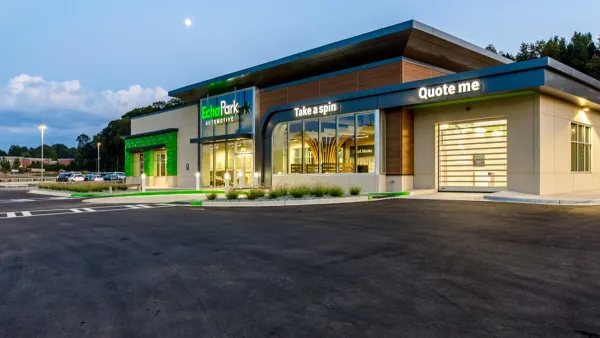Editor's note: This story is part of the WardsAuto digital archive, which may include content that was first published in print, or in different web layouts.
The end of the year is approaching and many auto dealer license- and bond-renewal dates are coming up.
It’s common to be confused as to how and when to renew an auto dealer bond. We’ve rounded up some of the most common mistakes and omissions auto dealers need to avoid as renewal deadlines for licenses and bonds approach.
Forgetting the Renewal Deadlines in Your State
Forgetfulness is a common reason for surety bonds to run out. But forgetting to renew your bond and license has some uncomfortable consequences.
Six states have license and surety bond deadlines of Dec. 31. These apply to the following types of bonds:
- Illinois Designated Agent Bond for Vehicle Dealers ($20,000).
- Louisiana Motor Vehicle Dealer Bond ($10,000-$35,000 depending on the bond).
- Montana Motor Vehicle Dealer Bond ($15,000-$50,000 depending on the bond).
- Nebraska Motor Vehicle Dealer Bond ($50,000).
- Oklahoma Motor Vehicle Dealer Bond ($25,000).
- Rhode Island Dealer Bond ($50,000).
Waiting Until the Last Minute
If you wait until the last minute to renew your bond, you’re already late. The usual requirement is that renewal payment on your bond must be made no later than 30 days before your bond and license expire. This is because sureties usually have an obligation towards state DMVs to notify them of auto dealer bonds that are about to be cancelled.
Depending on your state, however, there may be different requirements for your renewal. The best – and simplest – thing is to check your bond or speak to your surety bond agency.
Missing Your Renewal Deadline
What’s worse than waiting until the last moment is missing your deadline altogether. There are fees and penalties associated with failure to maintain continuous licensing as well as bond coverage. In some cases, these may even result in having your license suspended or revoked.
That’s why both license renewal and surety-bond renewal must take place before the deadline. Having your license suspended – or revoked – can become a major hassle and can hurt your business in serious ways. Your surety typically will send a reminder or renewal invoice at least 60 days before the deadline.
Being Unprepared for the Costs
If you don’t know how your premium is calculated, you may end up being surprised by how much you have to pay. Being mindful of your financials and how your situation influences the cost of your bond will help you steer your dealership strategy in the right direction.
The cost of your auto dealer bond is not fixed and may vary from year to year. This depends for the most part on the dealership’s financial stability. If you demonstrate good finances, especially a good credit score, your surety bond premium will be lower.
If your credit score has increased over the last year along with other indicators of your business’s health, your surety may offer you an even lower quote. In more practical terms this translates to: 1%-3% of the total bond amount for high credit score applicants and up to 10% for applicants with lower scores.
Having to Pay Too Much
Your surety may ask you to pay a higher premium if your credit score or other indicators have dropped. You need make sure your business is equipped to deal with this.
While it may seem demanding, this is exactly the type of regulatory role auto dealer bonds play, motivating dealers to give their best and keep things in check.
If you consistently keep your credit score and finances in good shape, pay all bills and dues on time and choose your surety bond agency carefully, you will get a good premium when renewing your bond.
This also applies to the renewal itself. The stricter you are with renewing your bond and license on time, the better a relationship you will have with your surety.
Vic Lance is the founder and president of Lance Surety Bond Associates.









